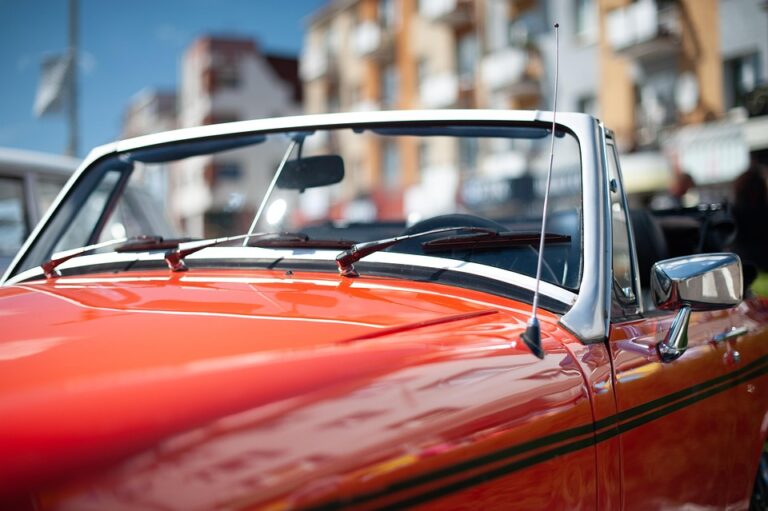The Evolution of Luxury: A Journey Through the World’s Most Iconic Car Brands
Luxury cars have consistently represented aspiration, status, and the latest technological advancements. From their humble beginnings to the technologically sophisticated vehicles we see today, the evolution of luxury cars is a fascinating narrative filled with innovation, artistry, and engineering excellence. This article delves into some of the world’s most iconic luxury car brands, tracing their impact on the automotive landscape and what sets them apart.
A Legacy of Prestige: The Origins of Luxury Cars
Luxury cars can be traced back to the early 20th century with brands like Rolls-Royce and Mercedes-Benz, which defined the quintessence of luxury. Rolls-Royce, founded in 1904, was synonymous with meticulous craftsmanship and engineering perfection. Today, the company’s motto, “The Best Car in the World,” reflects its unwavering commitment to luxury.
In the 1920s, luxury cars began to gain immense popularity, partly due to economic prosperity in Europe and the United States. According to a recent report by Grand View Research, the global luxury car market is expected to reach $607.74 billion by 2027, growing at a CAGR of 5.65%. This statistic underscores how luxury cars have maintained their appeal even amid economic fluctuations, a testament to their enduring allure.
Innovations that Redefined Luxury
Technological Advancements
When discussing the evolution of luxury cars, one cannot overlook the role technology has played in shaping consumer expectations. For instance, brands like Tesla have revolutionized the luxury car market with their electric vehicles (EVs) and autonomous driving features. With a focus on sustainability, Tesla leads the industry, showcasing how luxury can seamlessly align with eco-friendly practices.
Customization and Personalization
Another significant trend has been the rise of customization. Brands like Aston Martin and Bugatti allow clients to tailor their cars to such an extent that they become exclusive personal statements. This hints at a broader shift in luxury towards personalized experiences. Rather than merely owning high-end vehicles, consumers increasingly want to express their individuality through bespoke designs.
Iconic Brands and Their Contributions
Rolls-Royce: The Pinnacle of Luxury
Rolls-Royce remains the archetype of luxury cars. Its commitment extends beyond mere transportation; it embodies a lifestyle defined by sophistication and elegance. Each vehicle is a handcrafted masterpiece, employing skilled artisans to ensure that even the tiniest details meet the highest standards.
Image suggestion: A stunning image of the Rolls-Royce Phantom with the alt text "Luxury Cars – Rolls-Royce Phantom".
Mercedes-Benz: Innovative Excellence
Mercedes-Benz has consistently pushed the boundaries of luxury with its powerful performance and cutting-edge technology. Models like the S-Class serve as benchmarks in the luxury segment, with features such as the MBUX infotainment system that offers voice recognition and artificial intelligence.
Ferrari: The Sporting Luxury
Ferrari stands out as a luxury car brand that marries speed with exclusivity. Known for its racing background, owning a Ferrari isn’t just about having a car; it’s about joining an elite club. This exclusivity can be likened to owning a rare piece of art, where demand far exceeds supply, elevating its value.
Image suggestion: A dynamic shot of a Ferrari F8 Tributo speeding on a track with alt text "Luxury Cars – Ferrari F8 Tributo".
The Luxury Car Consumer
Demographic Trends
As interest in luxury cars grows, so does the demographic of typical luxury car buyers. A significant trend is the increasing number of young buyers, as evidenced by a 2022 report from Luxury Institute, which noted a 30% rise in luxury vehicle purchases among millennials. This trend indicates a shift in how luxury is defined—moving from age-old status symbols to vehicles that reflect personal taste and lifestyle choices.
Global Market Expansion
Furthermore, as emerging markets expand, luxury car brands have a greater opportunity for growth. China has overtaken the U.S. as the largest luxury car market, with sales of luxury cars climbing 8-11% annually. This global expansion offers luxury brands lucrative opportunities to refine their offerings to cater to new tastes and preferences.
The Future of Luxury Cars
The journey through the evolution of luxury cars suggests that the future will be defined by sustainability, smart technology, and personalized experiences. As manufacturers invest in electric technologies and AI, the luxury car market is set to grow even more innovative, ensuring luxury cars remain symbols of distinction and desirability.
Conclusion: A Continuous Journey
The evolution of luxury cars stands as a fascinating exploration of artistry, commitment, and modernization. As new technologies continue to emerge, luxury car brands will undoubtedly adapt and thrive, pushing the boundaries of what luxury truly means. For those looking to explore further, check out our articles on The Rise of Electric Vehicles and Luxury Car Maintenance Tips. Additionally, for deeper insights into the luxury car market, visit Grand View Research or Luxury Institute.
Luxury cars resonate with the values that modern consumers hold—innovation, customization, and personal expression in the realm of mobility. As we continue this journey through the luxury car market, one thing is certain: the drive for excellence in luxury will remain unyielding.


